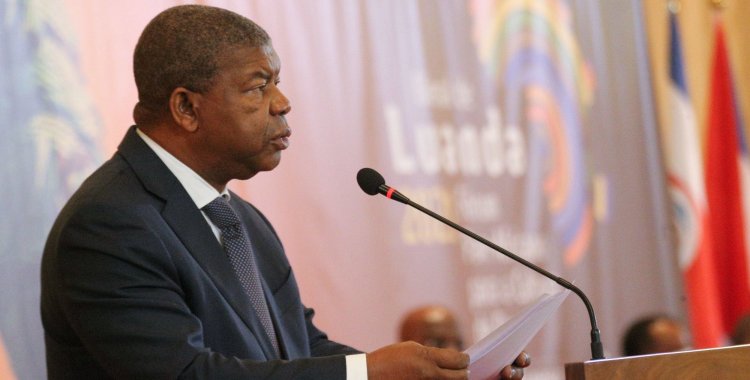Throughout the 122 pages of "João Lourenço – Herança, frustrações, sucessos (e a derrota em Luanda)", Rui Verde presents a João Lourenço who, after the failure of the political and economic system in 2017, "had the foresight to understand what confronted" and opted for the reformist path.
That bet brought him "the enmity of his peers and the dominant oligarchy", considers in the last chapter of the work Rui Verde, associate researcher at the Center for African Studies at the University of Oxford, where he is developing a project on Sino-Angolan relations.
João Lourenço is currently "a man in a difficult position, because many of the former allies have turned against him and many of the former enemies are not with him", and "he is on that very difficult line between reforming the past, but still not having grasped the future", describes the researcher.
Rui Verde makes use of a metaphorical image to present João Lourenço: "Compared to all the reformers that have ever existed, some with success, others with failure, from Marcello Caetano to Adolfo Suarez, a case of failure and a case of success [respectively], is, what I like to call, halfway across the bridge".
"When he took power as President of the Republic (2017) he realized that in fact he had everything trapped and, therefore, he was dismantling little by little. My idea is that José Eduardo dos Santos [predecessor of João Lourenço in the Presidency] only delivered power, in addition to health issues, because he had reached a dead end, a certain blockade by the regime, he didn't even have solutions politically and economically he didn't know what to do", he considers.
Rui Verde believes that João Lourenço "didn't have a good idea of what was waiting for him", which is why in the first months of his presidential term he was faced with "surprise after surprise" to which he "was reacting".
"Possibly he did not intend to be a reformist President, but just managed the situations and he was forced to become a tentatively reformist President. Let's see how this ends, shall we? And for that, it generated what we can call the current confusion, of great dissatisfaction", he adds.
"Deep down in this second term" (started last September), João Lourenço "it's all up to him". If in the first presidential term he could claim that he had a "heavy inheritance", now "it's up to him", he reiterates.
On the external front, João Lourenço decided to carry out a "partial pro-Western realignment, with the United States – and, incidentally, see Angola's vote in the last General Assembly, regarding Ukraine –, but also an openness to guaranteeing investments Germans, French and, somehow, English".
Rui Verde claims that Angola has now embarked on a "decline in its relationship with Russia and the mandatory renegotiation of its relationship with China".
João Lourenço hopes that this "geostrategic realignment" will translate into investments for the country.
"What he expects from this geostrategic realignment is that it bring investment. First, let's say, it was to obtain the quality seal of the IMF [International Monetary Fund]" and with these "new investments to finally relaunch economic growth", he opines.
The options that João Lourenço adopted have risks, highlights Rui Verde.
"There are two problems. One is the internal lack of support within the MPLA [the party that João Lourenço leads and that governs Angola since independence in 1974] and which felt its benefits slipping away and, therefore, does not support the President with enthusiasm. second problem, which turns out to be more important, is the population", he stresses.
"The population still hasn't felt any benefits. They can say that they are America's friends now, but the population doesn't eat the American flag. They can say that the IMF praises them a lot, but the economic recovery has not yet reached the people. And that's the main problem", he adds.
"The problem is getting the supposed benefits of a policy to the population. Because if it doesn't arrive, the population will look for other solutions", he anticipates.
Relying on the results of previous elections, Rui Verde considers that the population is "politically active and already quite critical", because "the amorphism that was experienced after the end of the civil war, no longer exists".
The MPLA will have to do like UNITA (National Union for the Total Independence of Angola), which in these elections "made a great opening to civil society".
"The MPLA has to do the same, to continue winning elections. The old system that we can call Soviet, of deciding from above, democratic centralism, is over. Therefore, the MPLA has to return once again to the people, to the intellectuals, to the teachers, doctors, everyone who today constitutes the embryo of the middle class", he defends.
Rui Verde says that "this change has to exist" and that "there is hope that the municipal process will also allow some opening".
The last two paragraphs of the book lay out the clues for the future of João Lourenço and Angola: "Let's not have any doubts. The last word will belong to the youth. In recent years in Angola, apparently nothing has changed, for everything to change. A total change would have been most likely a return to the past, what is needed is to seem like it doesn't change, for everything to change".







